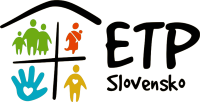Explaining the Project Let´s Learn How to Learn
The project Let´s Learn How to Learn has been supported by Iceland, Liechtenstein and Norway through Active Citizenship and Inclusion Program, operated by Ekopolis Foundation in collaboration with the Children of Slovakia Foundation and SOCIA – The Foundation for Social Change.
Project Aims:
- To use the method of Feuerstein Instrumental Enrichment (FIE) for improving learning skills of students from marginalized Roma communities (MRC).
- To increase the level of readiness of pre-school children from MRC for entering mainstream primary school education.
- To verify in practice the effectiveness of FIE in educating Roma children from MRC in both formal (primary school) and informal (community centers) education environment.
Project Justification:
In most cases, children from MRC start formal compulsory education without any previous pre-school preparation. The environment in which they are brought up usually does not provide appropriate balanced stimuli for developing not only their pre-school skills, but also the command of the Slovak language and logical thinking.
Children from MRC start attending the first grade, or often zero grade, with underdeveloped cognitive functions that are crucial for acquiring reading and writing skills by standard teaching procedures. As a result, many children from MRC fail in mainstream education system and their performance is considerably poorer in comparison with their peers, in spite of all effort made by their teachers and all support given by their school and community center educators. Combination of the above mentioned factors results in transferring these children from the mainstream school system to schools for children with special needs, in early school dropout, unsatisfactory performance and decision not to apply for secondary education.
The aim of the project was to implement in elementary schools and community centers near MRC the FIE method, which had been successfully applied in more than 50 countries worldwide. The method is aimed at the development of cognitive and emotional potential of students. The FIE method is based on the principles of developmental and cognitive psychology and special needs pedagogy. Many research studies have proven its effectiveness in dealing with children and adults whose ability to learn and utilize the acquired knowledge in every-day life has been slowed down or impaired for various reasons.
Project Activities:
The pilot project was realized by ETP in the school year 2013/2014 in two primary schools in Veľká Ida and Košice-Šaca, as well as in 10 community centers (Košice-Šaca, Krompachy, Moldava nad Bodvou, Ostrovany, Rankovce, Rudňany, Sabinov, Spišské Podhradie, Stará Ľubovňa, Veľká Ida).
At the primary schools, the project activities were realized as an afternoon school club, during which local teachers, a specialized pedagogue (Veľká Ida), and in some cases also another trained pedagogue (Košice-Šaca), worked with about 10 students in the first grade for 3 lessons each day. The afternoon school club concentrated on the development of cognitive, emotional, social and verbal skills of students by means of the FIE method.
In a similar manner, the FIE method was used to educate children of pre-school age as part of the project within pre-school clubs held in 10 community centers regularly 4 times a week 2 hours a day.
In the first project phase, in October 2013, cognitive development experts from the Feuerstein Institute (Israel) trained 4 zero- and first-grade teachers (2 pedagogues from Primary School in Veľká Ida and 2 teachers from Primary School in Košice-Šaca), 2 specialized pedagogues and 20 community center educators of ETP Slovakia (community centre leaders and mentors) to be able to implement the FIE method on a daily basis (in both formal school education and pre-school clubs in community centers).
Before the beginning of the school year 2013/2014, experts from the Feuerstein Institute (FI) had assessed 20 students (upon their enrollment in the first/zero grade of primary school) with LPAD (Learning Propensity Assessment Device) – a tool developed by the Feuerstein Institute to assess the cognitive potential of a person. Unlike standard psychometric IQ tests, the LPAD enables to determine the child´s potential for the development of his or her cognitive functions, i.e. the ability to learn. At the same time, the LPAD also assesses the level of the child´s deficiencies in cognitive functions and helps to determine the ways in which the child needs to improve.
To get quantitative data to compare changes in cognitive abilities of the children, 3 separate groups of children students were assessed by standard IQ tests before the beginning of FIE intervention:
a) 20 children participating in an intensive FIE program in the afternoon school club;
b) 20 children, belonging to the same MRC, who were educated by FIE-trained teachers during the formal morning classes but did not attend the after-school activities; and
c) 20 children, belonging to the same MRC, not participating in the FIE program at all (control group).
Project Results So Far (until May 2014):
– Application of the FIE method helped develop several cognitive processes of the children
– Children´s intrinsic motivation to learn and to work has increased
– Children´s language skills and fine motor skills have improved significantly
– Children and students are making progress in their ability to control their emotions and work in groups
– Children´s self-control has improved
– There is a notable difference in the quality and results of work between children attending school clubs and other students in the classroom
– The project has increased the interest of Roma parents in education of their children

Specialized pedagogue working in the school club in Veľká Ida: „The greatest success is that the children have gained in self-confidence, that they have experienced the feeling of self-worth and learned to take the ‘I can’ approach.”
Teacher from the Primary School in Veľká Ida: „Training in this method has opened our eyes and offered a different approach to working with children.“
A 6-year old zero-grade student from Veľká Ida: „Mrs. Teacher, please tell me we will not end up in a special class!“

